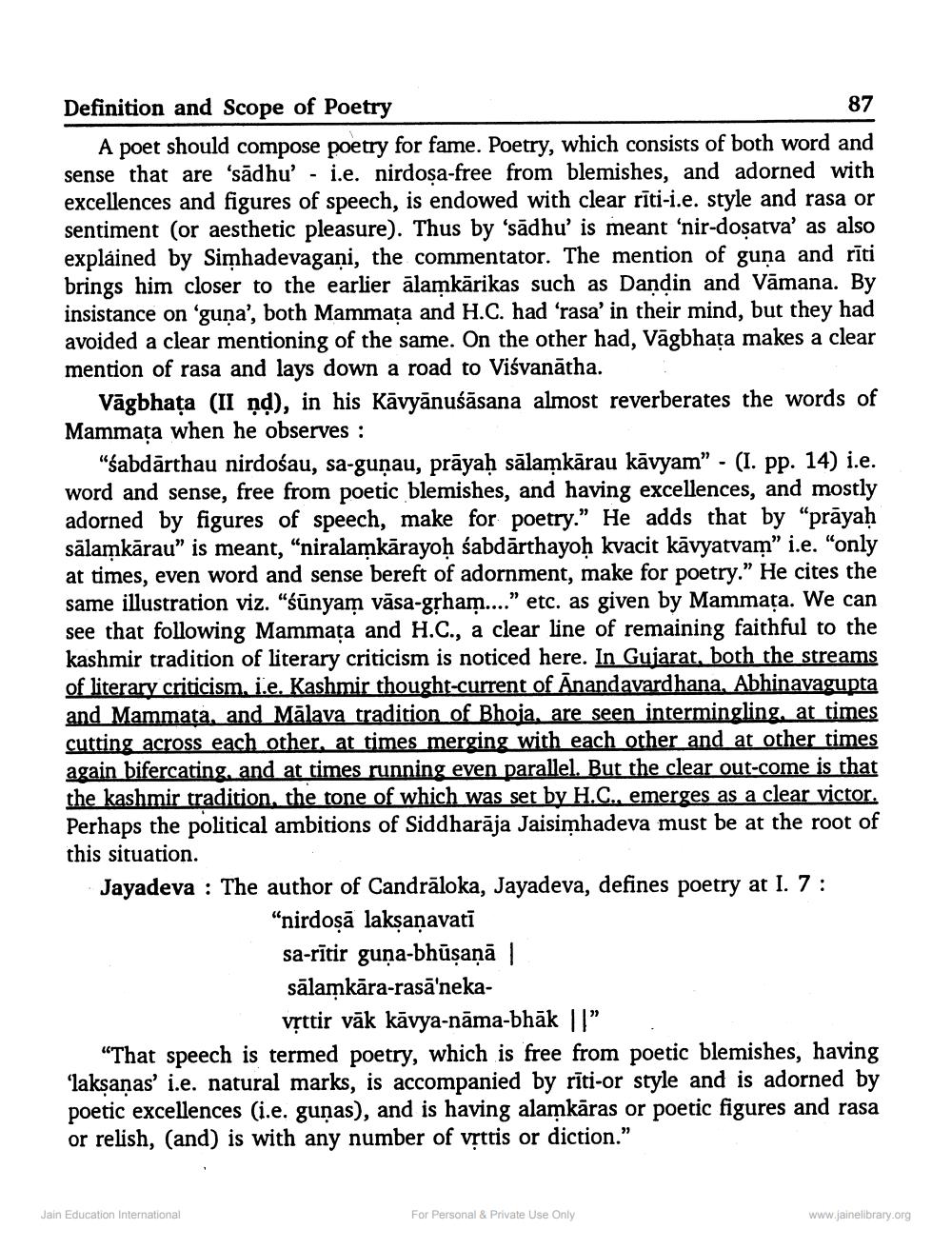________________
Definition and Scope of Poetry
87 A poet should compose poetry for fame. Poetry, which consists of both word and sense that are 'sādhu' - i.e. nirdosa-free from blemishes, and adorned with excellences and figures of speech, is endowed with clear rīti-i.e. style and rasa or sentiment (or aesthetic pleasure). Thus by 'sādhu' is meant 'nir-dosarva' as also explained by Simhadevagani, the commentator. The mention of guna and rīti brings him closer to the earlier alamkārikas such as Dandin and Vāmana. By insistance on 'guna', both Mammata and H.C. had 'rasa' in their mind, but they had avoided a clear mentioning of the same. On the other had, Vägbhata makes a clear mention of rasa and lays down a road to Viśvanātha.
Vāgbhasa (II ņķ), in his Kāvyānuśāsana almost reverberates the words of Mammata when he observes :
"sabdārthau nirdośau, sa-guņau, prāyaḥ sālamkārau kāvyam" - (I. pp. 14) i.e. word and sense, free from poetic blemishes, and having excellences, and mostly adorned by figures of speech, make for poetry.” He adds that by “prāyaḥ sālamkārau" is meant, "niralamkārayoh sabdārthayoh kvacit kāvyarvam" i.e. "only at times, even word and sense bereft of adornment, make for poetry.” He cites the same illustration viz. "sünyam vasa-grham...." etc. as given by Mammaţa. We can see that following Mammata and H.C., a clear line of remaining faithful to the kashmir tradition of literary criticism is noticed here. In Gujarat, both the streams of literary criticism, i.e. Kashmir thought-current of Anandavardhana, Abhinavagupta and Mammata, and Mālava tradition of Bhoja, are seen intermingling, at times cutting across each other, at times merging with each other and at other times again bifercating, and at times running even parallel. But the clear out-come is that the kashmir tradition, the tone of which was set by H.C.. emerges as a clear victor. Perhaps the political ambitions of Siddharāja Jaisimhadeva must be at the root of this situation. Jayadeva : The author of Candrāloka, Jayadeva, defines poetry at I. 7 :
“nirdosā laksanavati sa-rītir guna-bhūsaņā | sālamkāra-rasā'neka
vịttir vāk kāvya-nāma-bhāk ll”. "That speech is termed poetry, which is free from poetic blemishes, having 'laksaņas' i.e. natural marks, is accompanied by rīti-or style and is adorned by poetic excellences (i.e. guņas), and is having alamkāras or poetic figures and rasa or relish, (and) is with any number of vrttis or diction."
Jain Education International
For Personal & Private Use Only
www.jainelibrary.org




